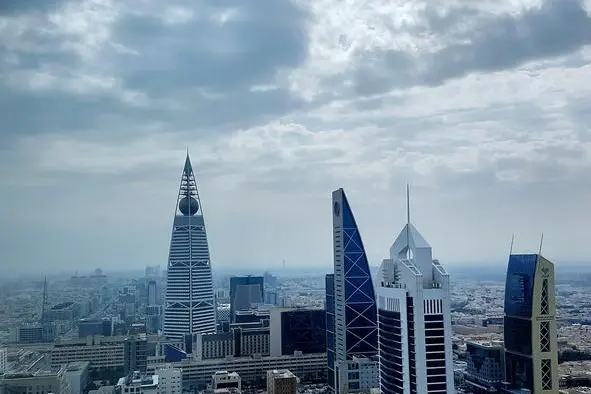PHOTO
The coronavirus has stymied a rebound in Saudi Arabia’s real estate sector as the pandemic brings property transactions – and the kingdom’s wider economy - to a standstill.
State reforms to bolster home ownership had helped the residential sector to outperform commercial property over the past 15 months. Industry experts warn that office vacancy levels will probably rise as hard-pressed companies cut costs, while both house prices and commercial rents will likely fall due to sagging demand.
Apartment and villa prices in Riyadh rose 3.6 percent and 6.6 percent respectively in 2019, Knight Frank data shows. Jeddah saw smaller-sized gains – apartment prices added 3.3 percent and villa prices grew 1.8 percent over the same period.
These increases signalled the end of a prolonged market slump; Saudi’s real estate index, which includes both commercial and residential property, declined continuously quarter-on-quarter from early 2015 until the end of 2018.
State initiatives to bolster the real estate sector and open up the economy to greater foreign participation spurred last year’s recovery. The kingdom aims to raise home ownership to 60 percent among nationals and increase total outstanding mortgages to 502 billion riyals ($133.9 billion) by the end of 2020.
Last year, Saudi banks issued 170,275 new mortgage contracts, more than treble the 2018 total of 46,885, SAMA data shows. The 2019 contracts were worth a combined 73.9 billion riyals.
In Riyadh alone, the volume and value of residential real estate transactions – including mortgages and cash sales - surged 53 percent and 63 percent year-on-year in 2019, according to consultants CBRE.
Initial data from Knight Frank shows residential prices increased further in the first quarter of 2020. Apartment and villa prices rose 4.2 percent and 6.3 percent respectively in Riyadh and 6.1 percent and 3.1 percent respectively in Jeddah.
But transaction volumes then declined substantially in March as the lockdowns came into force and volumes in April are likely to have come all but a standstill, said Taimur Khan, Associate Partner at Knight Frank in Dubai.
“At this stage, it’s difficult to forecast the exact movement in prices in the residential sector,” he said. “Due to the stringent, open-ended lockdowns in place and the expected impact on the economy, we anticipate the residential market is likely to witness a significant decline in activity over the coming months. This in turn will put pressure on prices.”
To limit the coronavirus’s spread, Saudi halted inbound and outbound international flights from March 15 and enforced a curfew in major cities including Riyadh, Jeddah, Dammam and Dhahran, where non-essential businesses have been ordered to suspend activities indefinitely. As of May 5, Saudi Arabia reported 30251 cases of Covid-19 and 200 deaths.
In response, the government launched a 129 billion riyal economic stimulus package that includes a 9 billion riyal fund pay up to 60 percent of Saudi nationals’ salaries at SMEs. Nevertheless, uncertainty over how long the pandemic will stifle economic activity will deter companies from making key decisions such as whether to expand their premises or relocate, said Khan.
David O’Hara, Head of Savills Saudi Arabia, said the positive impact of these government measures will trickle down to the economy and the real estate sector in the long run.
“However, in the short-to-medium term, economic growth is likely to remain muted,” he said in an April 19 press release.
COMMERCIAL REAL ESTATE
In Riyadh, primary and secondary office rental values fell 1 percent and 2 percent respectively in 2019, CBRE estimates, while Knight Frank data shows vacancy rates fell several percentage points to 6 percent for Grade A office space and 28% for Grade B.
Riyadh vacancy levels will likely increase, especially as the Saudi capital’s gross leasable area (GLA) will soar to 5.14 million square metres by 2022 from 3.99 million sqm at 2019-end, Knight Frank estimates.
Site inspections for new office leases have been halted and the start date on some contracts has been delayed, Savills said. Nearly 80% of enquires to Savills remain ongoing, but progress has slowed “as companies struggle to start fit-out work on the new premises and key decision makers across multinational companies revisit their business strategy,” said O’Hara.
“Fundamentally, there is a strong demand for investment grade real estate across Saudi Arabia. A few of the ongoing deals have been finalized in the last few weeks, indicating a long-term optimistic view most companies are adopting.”
Over the past 18 months, the government’s relaxation of investment rules in order to woo foreign firms led to a jump in enquiries from regional and global companies seeking to establish or expand their operations in Saudi Arabia, he said.
“We anticipate a strong recovery in demand especially across the office and retail sector during the second half of 2020, provided the current situation is contained and business activity resumes at the earliest,” added O’Hara.
(Reporting by Matt Smith, editing by Seban Scaria)
#SAUDI #REALESTATE #CORONAVIRUS
Disclaimer: This article is provided for informational purposes only. The content does not provide tax, legal or investment advice or opinion regarding the suitability, value or profitability of any particular security, portfolio or investment strategy. Read our full disclaimer policy here.
© ZAWYA 2020





















